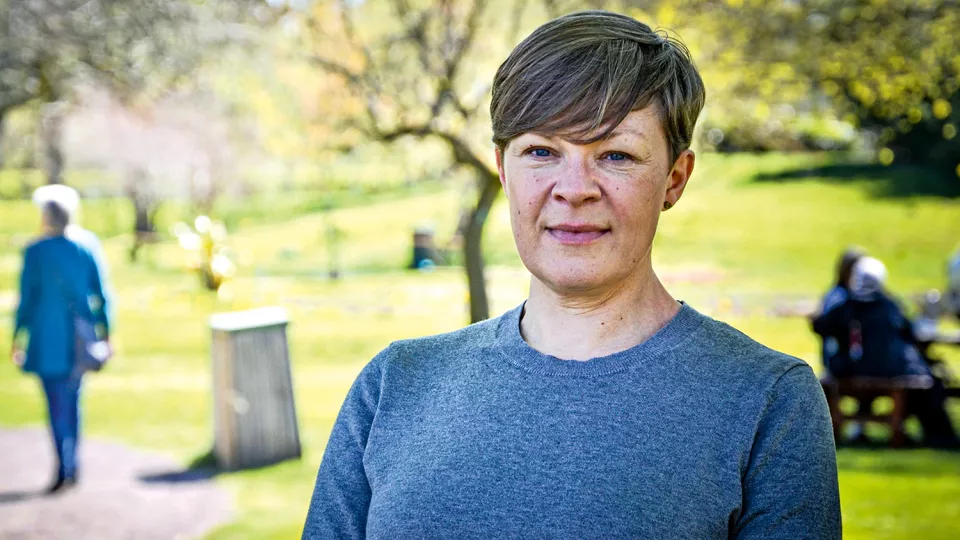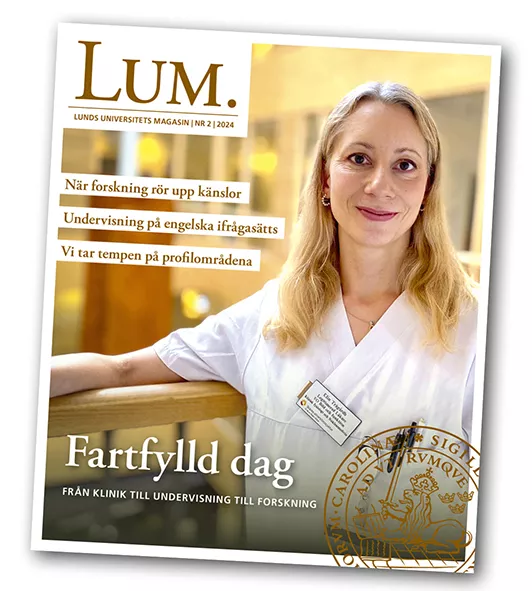"I used a year's worth of creativity in the first few weeks, and learnt that you can do a lot if you are not afraid to test things out", says Elsa Trolle Önnerfors, senior lecturer in legal history and vice dean with responsibility for education at the Faculty of Law. Digitally, the faculty had already come a long way prior to the pandemic. All of the courses were gathered on their learning platform Blackboard and teaching staff were familiar with how it worked. The faculty also has its own recording studio and student teaching assistants with special training in the learning platform.
"The student teaching assistants were an incredible asset when we had to upload recorded lectures and digital exams to Blackboard", she says.
The faculty chose to follow the ordinary timetable to create a sense of security for the students. The different digital rooms on Blackboard are even named after the rooms at Juridicum. After a while, some teaching staff chose to shorten the teaching sessions.
"We have added in more breaks – every 30 minutes. Maintaining concentration is more demanding when learning remotely", says Elsa Trolle Önnerfors.
A day or so after the decision on distance education was taken, she was meant to have held an oral exam for 100 students, in which they ordinarily answer questions for 20 minutes each. It quickly had to be converted to a written digital exam, with all the available aids. However, the resulting grades were roughly the same as they usually are, a sign that it worked.
"I think the time limit is crucial, and to ask questions that require the student to have thoroughly read the required reading", she says.
After Easter, the initial challenges were in many ways solved. A functional albeit less colourful and less social work day was in place. Now, says Elsa Trolle Önnerfors, the most important thing is how the students are feeling.
"Particularly those students who perhaps already had a limited social life, we have to try to identify them", she says.The student barometer has indicated growing psychological ill health in recent years and many students miss the social context while studying in the coronavirus situation. The many festivities of the spring semester are also cancelled and the student nations remain closed. Some students at Juridicum have chosen to travel home to their families during the pandemic, however many remain in Lund.
"We need to show that we are still there for the students – one course has chosen to do this through digital cosy Fridays where they discuss current legal cases", says Elsa Trolle Önnerfors, adding that the faculty also uses social media to stay in touch with students.
At the time of writing, the major question is whether the students will be able to return for the autumn. The Faculty of Law has admitted new students as usual to its Master's programmes, for which many are fee-paying international students. There will be a loss of income.
"Some students will potentially turn down their places if there will be digital course start. It will be more or less financially damaging for several faculties", she says.
There is also uncertainty for their own students who planned to study abroad. Several countries in Asia have already stated that exchange activities will be on hold in the autumn.
What is clear is that more people than ever are interested in studying. Money is to be allocated to be able to take on students. New programmes are also being created for those who have been laid off or are unemployed. The Faculty of Law will increase their study places. Elsa Trolle Önnerfors has always been interested in the digital space and sees several benefits of the sudden digitisation. However, it has also made her realise how much she misses meeting both students and colleagues.
“I miss people in all contexts. To stay motivated, I have to plan for things to be as usual in the autumn, despite being painfully aware that this may not eventuate”, she says.



